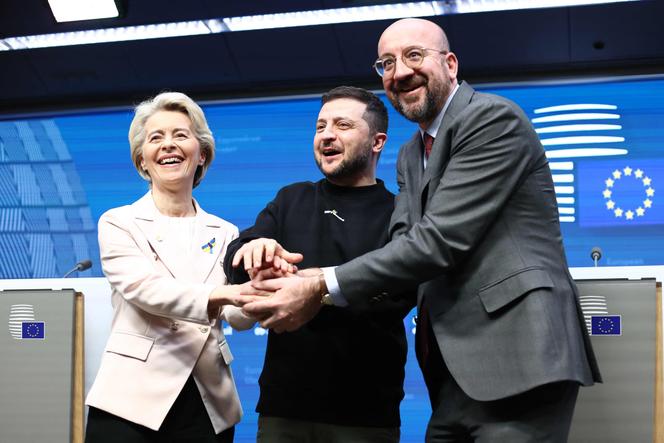

LETTER FROM BRUSSELS

Ursula von der Leyen is on the campaign trail. The Commission president is seeking a second term after the June 6-9 European elections. Since announcing her candidacy on February 19, she has been far less proactive on the issue of European Union (EU) enlargement to include Ukraine.
Until now, Angela Merkel's former minister has relentlessly pleaded Kyiv's cause with the 27 member states, not hesitating to make promises beyond what the member states were prepared to do. When she asserted that Ukraine was "part of the European family" a couple of weeks after the Russian invasion of February 24, 2022, Paris and Berlin were far less forthcoming, feeling rushed.
Now that she needs the support of Europe's heads of state and government in order to be reappointed, von der Leyen is trying not to upset them. On February 21, 2024, she was extremely cautious about the next stage in the process of allowing Kyiv – an official candidate for membership since June 2022 – to join the EU. The negotiating framework, a political roadmap for the negotiations, "will not be ready before the European elections," she said, but "rather around the summer," when not long ago she was still talking about March.
Adoption of this text formally launches negotiations with a candidate country. It must be adopted unanimously by the 27 member states, at an intergovernmental conference convened by the rotating EU Council presidency. However, in the second half of the year, Hungary will be in the driving seat. It's hard to imagine it rushing things at this stage, when its Prime Minister Viktor Orban is hammering home the message that Ukraine – "corrupt" and "at war" – has no place in Europe.
In addition, explained a European diplomat, the negotiating framework will have to deal with difficult subjects, "such as the protection of the Hungarian minority in Ukraine, or whether Ukrainian territories currently occupied by Russia should adopt the acquis communautaire [body of EU law]."
Since the beginning of the war, the Commission has always had its foot on the gas pedal. Although it meant taking certain liberties with the EU Treaties, the 27 member states – even those most reluctant around any further enlargement, such as France – have followed suit. In June 2022, they therefore granted candidate status to Kyiv, despite Ukraine not meeting the conditions for obtaining it, whether in terms of respect for the rule of law, the fight against corruption, respect for minorities or the independence of the judiciary. The important thing was to anchor Ukraine in the EU and send a strong political signal, both to Kyiv and to Moscow.
You have 57.43% of this article left to read. The rest is for subscribers only.
